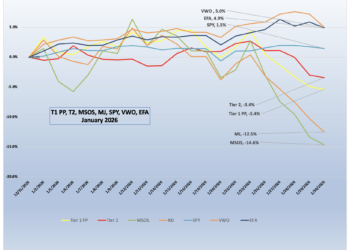The Pennsylvania General Assembly has another bill to consider that would legalize adult-use cannabis. In other legislative news this week, California and Missouri governors sign laws requiring fingerprinting of cannabis workers. And a bill to legalize medical marijuana in North Carolina is reportedly dead.
Two different adult-use bills in Pennsylvania
In Pennsylvania, Sens. Dan Laughlin, Republican, and Sharif Street, Democrat, introduced SB 846 on July 6. The legislation stands in stark contrast to HB 1080, introduced by Rep. David Delloso in May. While SB 846 would establish a robust adult-use program to be regulated under a new Cannabis Regulatory Control Board, the House bill would require state-run stores regulated by the Pennsylvania Liquor Control Board.
The 224-page SB 846 would legalize possession and use of marijuana for adults 21 and older and expunge non-violent marijuana convictions. It would also transfer regulatory powers from the Department of Health to the Cannabis Regulatory Control Board.
“All authority, information, documents, databases and necessary information of the medical marijuana program shall be transferred” from the health department to the new board within 180 days, the bill states.
The Department of Health has historically been resistant to releasing medical marijuana program information to the public, with many information requests ending up in court. Medical cannabis was legalized in the state in 2016.
Individuals would be able to possess up to 30 grams of cannabis flower, 1,000 mg of THC in edible or nonedible products, and 5 grams of cannabis concentrate. Medical cannabis patients would also be able to grow up to five plants at home.
The bill addresses a range of marketplace issues to be regulated including scoring of new business licenses; seed-to-sale tracking; marketing and labeling; pesticide use; and other business requirements. Business permits would be issued for cultivation/processing, micro-cultivation, dispensing and testing.
Priority would be given to current, nonvertically integrated medical marijuana growers and processors to receive another permit. There would also be a social equity program.
An 8% sales tax would be imposed plus a 5% excise tax on adult-use cannabis sales. Taxes would go into a new Cannabis Regulation Fund.
“Legalized adult use of marijuana is supported by an overwhelming majority of Pennsylvanians and this legislation accomplishes that while also ensuring safety and social equity,” said Laughlin in a statement. “With neighboring states New Jersey and New York implementing adult use, we have a duty to Pennsylvania taxpayers to legalize adult-use marijuana to avoid losing out on hundreds of millions of dollars of new tax revenue and thousands of new jobs.”
Comparatively, HB 1080 is only 19 pages. While retail cannabis stores would be established and operated by the liquor board, regulators “may not prohibit the operation” of cultivation, testing and manufacturing establishments. Application fees would be no more than $5,000, adjusted for inflation. The board would be required to adopt regulations by July 1, 2024, and begin accepting applications by Oct. 1, 2024.
The bill doesn’t specify how much cannabis a person 21 and older can possess when purchased from a store. It allows individuals to grow up to 6 plants and possess the cannabis produced on the premises where it’s grown. It allows for personal consumption, but not “openly and publicly or in a manner that endangers others.”
It would impose a 19% excise tax and a 10% gross receipts tax paid by cultivation facilities. All taxes would go into the general fund.
Delloso has tried to introduce similar legislation in past years. In an undated Facebook video, he said he’s afraid that if cannabis is not sold in state stores, “big corporate interests throughout the United States are gonna come to Pennsylvania, and they’re gonna put corner stores up that aren’t going to provide families with sustaining jobs, and all the profits are gonna leave Pennsylvania.”
Both bills wait in committees. Gov. Josh Shapiro has reportedly said he supports legalizing adult-use marijuana. The legislative session doesn’t end until November next year.
Laughlin wasn’t available for comment, his spokeswoman said. She said that finalizing state budget bills is the current priority. She did not respond to follow-up questions. Street’s and Delloso’s offices did not respond to requests for comment.
NC medical cannabis bill stalled
Meanwhile, in North Carolina, a bill to legalize medical marijuana is reportedly dead after not receiving enough Republican support in the House.
The Compassionate Care Act, SB 3, would establish a comprehensive medical cannabis program, including a licensed distribution system, to treat a number of “debilitating” conditions. It was approved by the Senate in March on a 36 to 10 vote. But it’s been sitting in House committees since May.
House Speaker Tim Moore, a Republican, told Marijuana Moment the bill doesn’t have the necessary Republican majority support to bring it for a vote. House Majority Leader John Bell agreed.
Kevin Caldwell, the southeast legislative manager of the Marijuana Policy Project, told Law360 that the bill “is not ‘dead-dead,’ but it’s 99 percent dead for this session.” He said he heard the bill would be taken up next year.
Fingerprinting cannabis workers
Bills that did get signed by governors recently include fingerprinting requirements in Missouri and California.
Missouri Gov. Mike Parson signed SB 40 on July 7. Effective Aug. 28, “all employees, contractors, owners, and volunteers of marijuana facilities” will be required to submit fingerprints to the Department of Health and Senior Services.
California’s AB 128 requires the Department of Cannabis Control to submit to the Department of Justice fingerprints and related information for background checks of “certain employees, prospective employees, contractors and subcontractors” whose job duties include access to cannabis or cannabis products. This new requirement doesn’t apply to employees or contractors hired before June 30, 2023. Additionally, the law exempts the requirement for an owner who has previously submitted fingerprints to a state licensing agency.
Signed by Gov. Gavin Newsom on July 10, AB 128 also allows for temporary licenses to sell and consume cannabis at special events.












